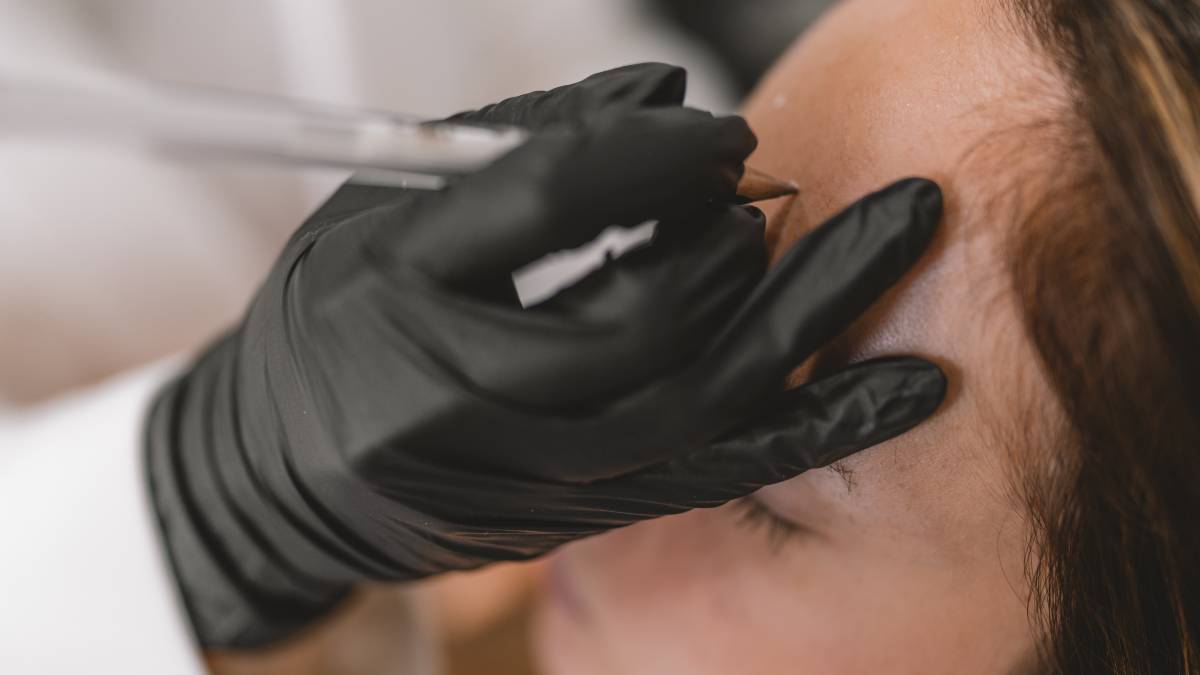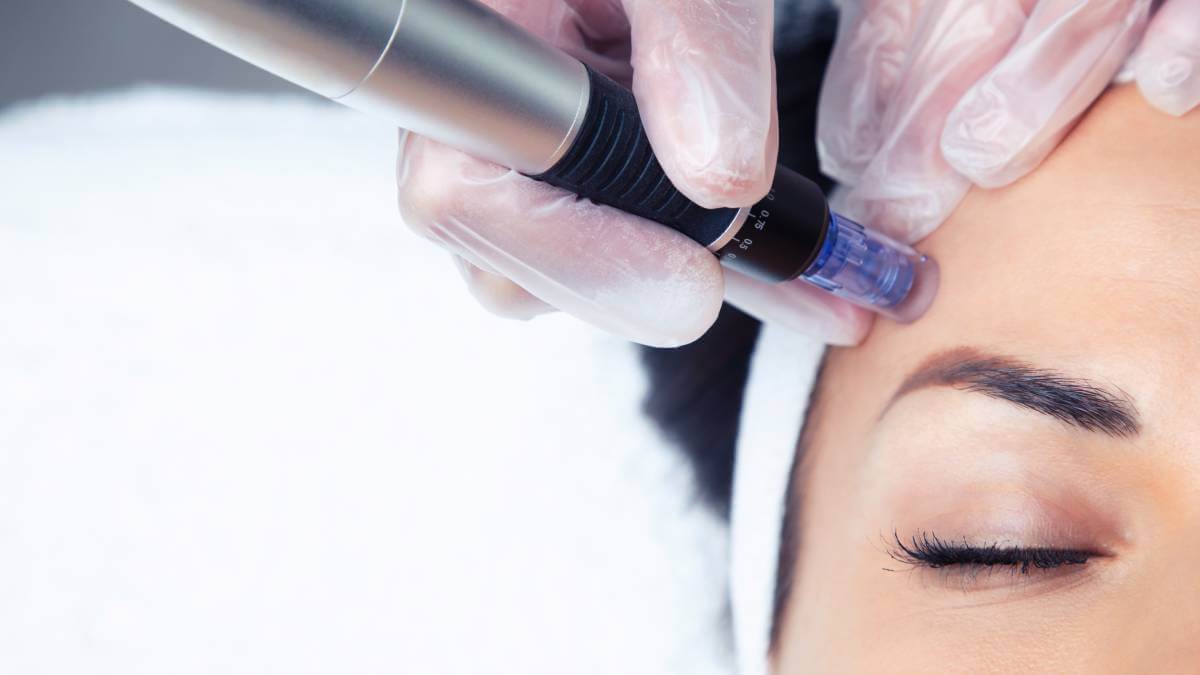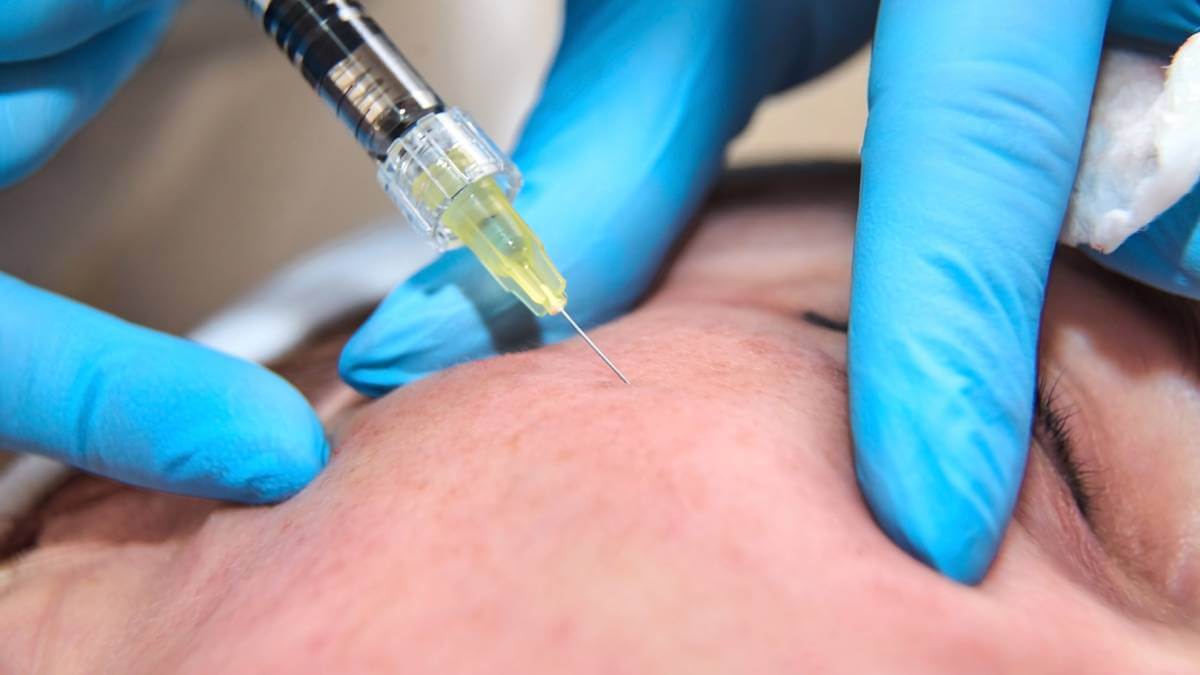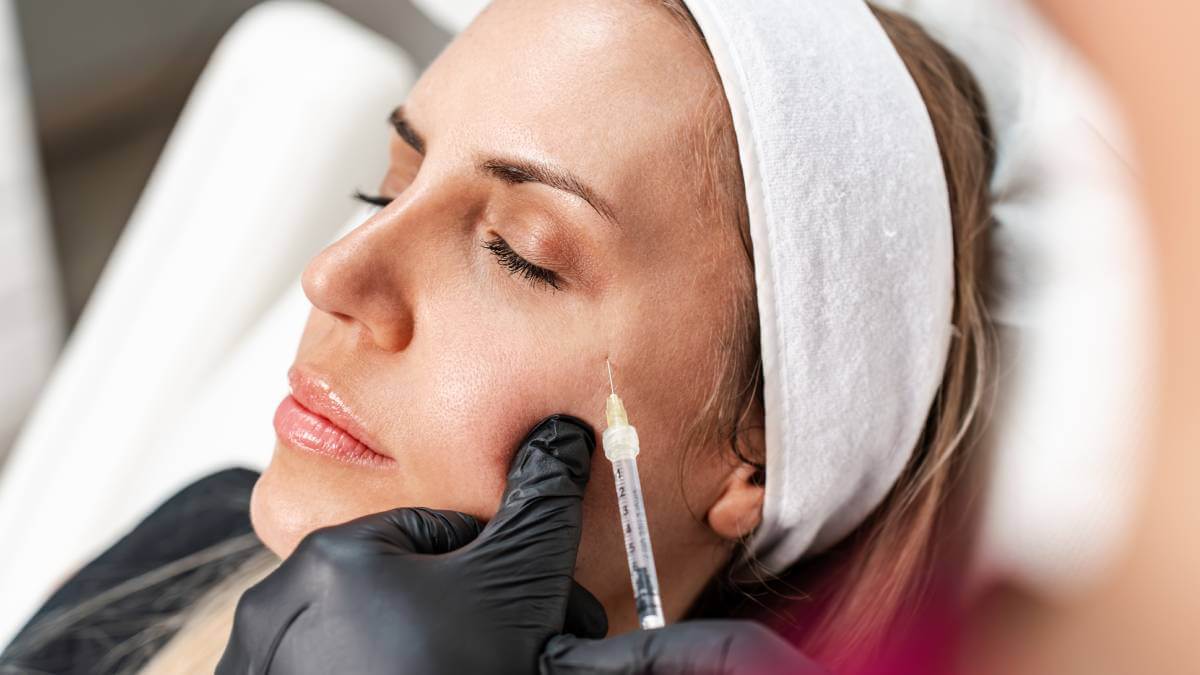Polynucleotides have become one of the most exciting new developments in aesthetic medicine, celebrated for their ability to transform the skin from within. But what are polynucleotides, how do they work, and why are so many people turning to them as part of their skin rejuvenation journey?
In simple terms, polynucleotides are DNA fragments that occur naturally and are specially refined for cosmetic use. When introduced into the skin, they encourage cell renewal and tissue repair — helping to restore a healthier, smoother, and more youthful-looking complexion.
This innovative treatment can be used on a variety of areas. It’s also highly effective for improving the appearance of scars, stretch marks, and damage caused by sun exposure or ageing, making it a versatile option for anyone wanting to refresh and revive their skin’s natural glow.
What Are Polynucleotides? Exploring How They Work & Their Benefits
At our trusted skin clinic in Milton Keynes, we’ve helped many patients enhance their skin’s natural glow and elasticity through advanced, medically backed treatments such as polynucleotides. When patients first come to us asking what are polynucleotides and how they can improve their skin, we take the time to explain the science behind the treatment and what results they can expect. Our priority is always your well-being and confidence, so we make sure to understand your goals fully and recommend a tailored approach to help you achieve them.
In this guide, we’ll answer the most common questions about polynucleotides, including:
- What is the Polynucleotides treatment?
- What do Polynucleotides do?
- Are Polynucleotides safe?
- How long do Polynucleotides take to work?
- How often should you have Polynucleotides?
- How long do Polynucleotides last?
- Polynucleotides aftercare

What Is The Polynucleotides Treatment?
As more people look for natural alternatives to traditional injectables, polynucleotide treatments have seen a surge in popularity — and for good reason. Derived from purified DNA fragments extracted from salmon, these injectables help bio-stimulate the skin to improve its structure, elasticity, and overall radiance.
When injected into targeted areas, the solution sends signals to skin cells that encourage renewal and repair. Essentially, it helps the skin do what it does best — heal and regenerate — but at a much faster rate.
Benefits of Polynucleotide Treatment include:
- Stimulates collagen and elastin production for firmer, smoother skin
- Improves texture, hydration, and elasticity
- Reduces fine lines, wrinkles, and skin laxity
- Enhances brightness by improving micro-circulation
- Minimises dark circles and hollowness under the eyes
- Keeps skin hydrated and refreshed
- Promotes cellular turnover for a fresher complexion
Polynucleotides can be used on the face, neck, décolletage, and even hands — anywhere that could benefit from a subtle yet effective rejuvenation. For more ways to achieve luminous, healthy-looking skin, check out our guide to revitalising tired and dull skin.
What Do Polynucleotides Do?
Think of polynucleotides as a powerful reset button for your skin. They work deep within the dermis to trigger collagen and elastin synthesis, which are the key proteins responsible for maintaining firmness and elasticity.
This “repair boost” helps improve overall skin quality, restoring smoothness and glow while reducing visible signs of ageing. Polynucleotides can be precisely placed to target specific areas of concern, such as under the eyes, one of the first areas to show tiredness and fine lines.
They can help improve:
- Fine lines and wrinkles
- Uneven skin texture
- Scarring and pigmentation
- Hydration and overall plumpness

Are Polynucleotides Safe?
It’s completely natural to have questions about safety before starting any injectable treatment. Polynucleotides have an excellent safety profile and are generally very well tolerated, with minimal side effects. Because they’re made from natural, biocompatible ingredients, the body recognises them easily, which greatly reduces the likelihood of adverse reactions when compared to synthetic alternatives.
You can also visit the NHS guided to cosmetic procedures for trusted information on what to consider before undergoing any non-surgical treatment.
Common short-term side effects may include:
- Small bumps or mild swelling at the injection site (usually disappearing within 12 hours).
- Light bruising, particularly around delicate areas such as under the eyes.
- Redness or tenderness, which typically subsides within a few hours to a couple of days.
Rare side effects:
- Infection — very uncommon, but it’s important to follow aftercare guidance carefully and ensure treatment is carried out in a sterile medical environment.
- Allergic reactions — while extremely rare, if you notice severe swelling,rash, or difficulty breathing, seek immediate medical attention. Contact your nearest medical professional such as our private doctors in Milton Keynes for further advice.
When performed by a qualified professional in a reputable clinic, the risk of complications is extremely low. At LasaDerm, all procedures are carried out by medically trained practitioners in a clean, clinical environment.
How Long Do Polynucleotides Take To Work?
Unlike fillers or Botox, which produce instant results, polynucleotides work gradually — because they stimulate your body’s natural regeneration process. This means patience is key, but the results are worth the wait.
Here’s a general timeline of what to expect:
- Weeks 1–2: Subtle hydration improvements and smoother texture may begin.
- Weeks 3–4: Increased fibroblast activity begins producing more collagen and elastin.
- Weeks 4–6: Skin looks firmer, brighter, and more even as renewal continues.
- Weeks 8–12: Peak results — enhanced elasticity, hydration, and overall skin vitality.
While some clients begin to notice subtle improvements within just a couple of weeks, the full transformation typically develops over two to three months. This is because the results build gradually as your skin regenerates, and they look natural and refreshed rather than sudden or artificial.

How Often Should You Have Polynucleotides?
For the best results, most patients start with an initial course of two to three sessions, spaced around two to four weeks apart. This gives your skin time to respond to the treatment and maximise its regenerative benefits.
Once the initial course is complete, maintenance sessions every three to nine months are usually recommended. The exact timing will depend on your skin’s needs and your individual goals.
A few key factors can influence how often you may need treatments:
- Skin concerns: Conditions such as scarring or severe dehydration may require additional sessions.
- Age and skin type: Mature or naturally dry skin can metabolise the treatment faster.
- Lifestyle factors, including sun exposure, smoking, and stress, can all impact the duration of your results.
During your consultation, our specialists at LasaDerm will take the time to get to know your skin, understand your goals, and learn about your lifestyle before creating a treatment plan that’s completely tailored to you. This personalised approach ensures your skin receives the right balance of rejuvenation, maintenance, and long-term care.
How Long Do Polynucleotides Last?
Once you’ve completed your full course of treatments, you can expect your results to last around six to nine months. Many patients notice that their skin continues to look fresher, smoother, and more radiant for months afterwards — the exact duration will depend on factors such as age, skin type, and lifestyle.
You can expect to see long-lasting benefits such as:
- Smoother, more even-toned skin.
- Fewer fine lines and wrinkles.
- Enhanced elasticity and hydration.
For more delicate areas such as the under-eyes, we usually recommend top-up sessions every six months to keep your results looking their best. Because polynucleotides work by strengthening and nourishing your skin from within, you’ll continue to notice subtle improvements in tone, texture, and hydration even as the treatment naturally settles over time.

Polynucleotides Aftercare
Polynucleotides are one of the most exciting advances in modern skin rejuvenation, but great results don’t end when you leave the clinic — they depend on how well you care for your skin afterwards. Following your practitioner’s aftercare advice helps your skin heal beautifully, enhances your final outcome, and ensures you get the very most from your treatment.
The first 24 hours:
- Avoid touching or rubbing the treated area. This helps prevent bacterial transfer and reduces the risk of irritation or infection.
- Cleanse gently. Use mild cleansers and lukewarm water — avoid exfoliants, acids, or retinoids for at least 48 hours.
- Protect from sunlight. If you need to go outside, apply a broad-spectrum SPF 50.
- Avoid makeup. Allow your skin 24 hours to breathe and recover naturally.
The first week:
- Stay hydrated. Drinking plenty of water enhances the treatment’s effects.
- Use soothing moisturiser. Opt for fragrance-free, hypoallergenic products to lock in moisture.
- Sleep elevated. Sleeping slightly upright can reduce swelling.
- Avoid alcohol and smoking. These can slow healing and diminish your results.
Long-term care:
Once your skin has healed, a few simple habits can help you keep that fresh, healthy glow for months to come:
- Keep your skincare gentle. Use soothing, hydrating products and always protect your skin with a good SPF — it’s the simplest way to preserve your results and prevent new damage.
- Eat a nourishing diet. What you put into your body shows on your skin. Aim for a balanced diet full of vitamins and antioxidants to help maintain your skin’s natural brightness and elasticity.
- Top up with maintenance sessions. Scheduling regular follow-up treatments is the most effective way to maintain your results.
- Protect your skin from stressors. Try to limit your exposure to UV rays. A few small lifestyle changes can go a long way in keeping your skin smooth, even, and healthy.
Our experienced practitioners will provide detailed aftercare advice following your treatment. Whether you’ve had polynucleotides or a more medical procedure like cyst removal in Milton Keynes, we’ll ensure you have the right guidance for smooth recovery and lasting results.

Our Skin’s Natural Renewal Starts Here
Polynucleotides mark a new era in skin rejuvenation, one that enhances your skin’s natural ability to repair and renew rather than simply concealing concerns. By boosting hydration, elasticity, and overall skin health, this treatment helps you achieve a fresher, more radiant complexion that still looks entirely your own.
If you’re interested in discovering how polynucleotides could benefit your skin, our experienced team at LasaDerm would love to help. As a trusted skin clinic in Milton Keynes, we’re passionate about creating treatments that are both scientifically advanced and beautifully natural in their results. From your first consultation through to your final appointment, we’ll make sure every step is comfortable, bespoke, and designed around you.
Ready to begin your journey towards smoother, more radiant skin? Book your consultation with LasaDerm today. Get in touch!
